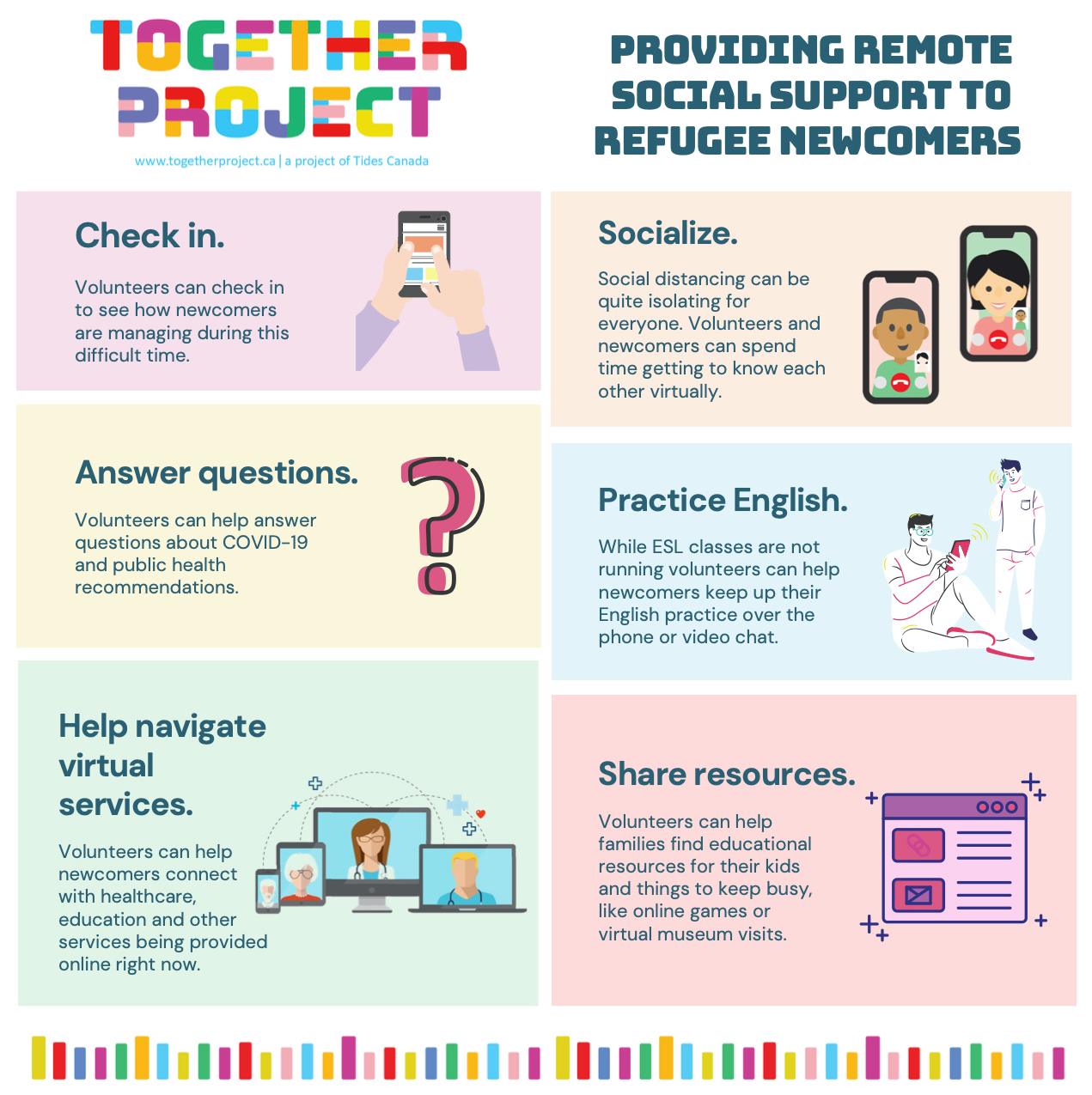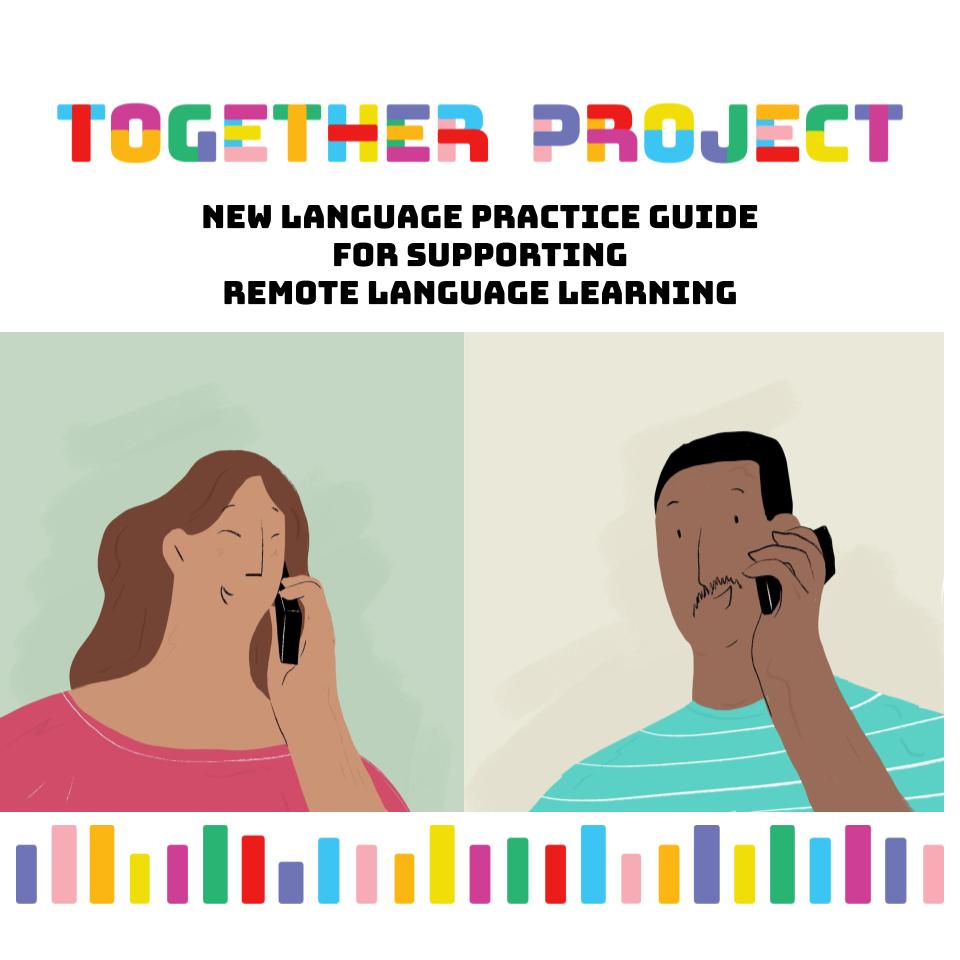As we adjust to the “new normal” that is the COVID-19 pandemic, we are starting to take note of how unique each community’s needs are in response to the effects of physical distancing, health care system strains, and closures of important services. There remain countless questions about how to ensure that communities –especially the most vulnerable –continue to receive the support they need.
This article continues our COVID-19 series, where we highlight how Tides Canada projects and programs are realigning their ways of practice to strive to benefit the communities in which they work.
It’s hard enough for people who have called Canada their home for many years, or all their lives, to stay up to date on need-to-know information in this ever-changing COVID-19 era. For newcomers to Canada, there are a myriad of other challenges. Imagine not yet being fluent enough in English to grasp government information updates on the virus, or if your household lacked internet access or a computer. For many new Canadians, this is the reality they are experiencing daily. Together Project, a project on the Tides Canada’s Shared Platform, is rapidly expanding their supports to address these barriers and others as they arise in newcomer communities.

“Maintaining social contact is a major challenge for all, but newcomers, particularly refugees, are among the most vulnerable. We want to ensure they have access to accurate information and social connection,” explains Together Project Co-Director, Anna Hill.
“Many of the newcomers in our program just want to have someone to talk to as a sounding board in uncertain times and with the spread of misinformation,” notes Co-Director Andrew Lusztyk. “Social connection means a lot to these individuals.”

Since 2017, Together Project has matched 130 newcomer families with volunteers, who provide social support to help newcomers adapt to life in Canada. These volunteer Welcome Groups act as a compliment to the government programs and help newcomers build their social networks in a new country through a set of newcomer-established priorities. In the wake of a global pandemic, these social connections are even more important as newcomer needs are often varied and different from those of more established Canadians.

As the global pandemic escalates and physical distancing continues, Together Project is finding innovative ways to communicate and connect with newcomers to ensure they are not left behind. While many newcomers have access to government supports, one in three newcomers are not aware of how to access these supports. Volunteers have an important role to play in mitigating feelings of isolation and in supporting immigrants and refugeesas they navigate online resources and information, much of which is currently changing almostdaily.With ongoing confusion about what’s happening now and what comes next, Together Project is helping address some of these challengesfor newcomers and providing essential support to a community that might otherwise be struggling to adapt.
